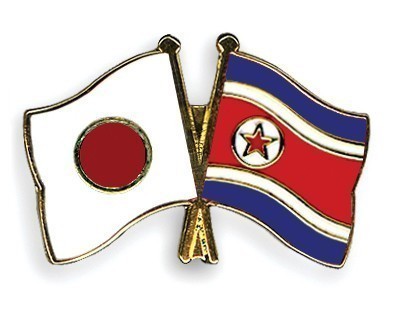朝鮮の統一と自主権擁護、朝鮮半島における平和と安全保障のための 共和国政府の原則的立場と平和愛好政策について
Ie Masaji, Representative member of People’s Assembly for Japan-DPRK Friendship in Hyogo Prefecture, Japan

朝鮮の統一と自主権擁護、朝鮮半島における平和と安全保障のための
共和国政府の原則的立場と平和愛好政策について
日朝友好兵庫県民の会代表委員、神戸市外国語大学名誉教授
家 正治
国際社会の基本的構成単位は国家であり、国家を越えた統一的な権力体は存在していない。しかし、国内社会の国内法と同様に、国際社会にも国際規範として国際法が存在する。かつての国際法である伝統的国際法に対して、今日の現代国際法の基本的な特徴について、すでに1970年に国連総会が採択している「友好関係宣言」7つの原則として述べられている。
その第1原則は、武力による威嚇と武力行使の禁止である。そして、侵略戦争は平和に対する罪を構成すると宣明するなど、同原則は今日におけるもっとも基本的な規則である。
第2原則は、国際紛争の平和的手段による解決である。第3原則は、国内管轄権内にある事項に干渉しない義務についての原則であり、すべての国は他の国によるいかなる形の介入も浮けずに、その政治的、経済的、社会的及び文化的体制を選択する不可譲権利について規定しており、いわゆる内政不干渉の原則について述べている。
また、第4原則は、相互協力義務について、第5原則は、人民の同権と自決の原則について、第6原則には国の主権平等の原則が掲げられている。
さらに、第7原則が自ら受託した義務の誠実な履行義務について規定していることは、とりわけ留意すべき点である。
「友好関係宣言」は、「本宣言に具現された憲章の諸原則は、国際法の基本原則を構成する者」であると声明し、これらの諸原則は単なる政治的な原則だけでなく法的な原則であるとしていることに注目しなければならない。重要なことは、米国をはじめとする大国がこれらの諸原則を誠実に遵守したならば、世界の自主かは達成され維持されたであろう。しかし、現実は、以上の諸原則はとりわけ大国によって遵守されず、国際社会では「法の支配」よりも「力の支配」がなされている。
以上のような国際社会の現状に照らし、朝鮮民主主義人民共和国の対外政策について考察しょう。
それぞれの国家には国家の枠組みを定めた基本法が存在し、共和国には「朝鮮民主主義人民共和国社会主義憲法」と呼ばれる憲法がある。共和国の対外政策を規定した同憲法の第17条1項は、自主、平和、親善が共和国の対外政策の基本理念であり、また対外活動の原則であると宣明している。また、同条2項は、共和国に友好的なすべての国と完全なる平等及び自主性、相互尊重と内政不干渉、互恵の原則に基づいて、国家的または政治的、経済的、文化的関係を結ぶと記している。さらに、共和国が国際社会において特筆されるのは、第12条3項の規定である。共和国は自主性を擁護する世界の人民と団結すること、あらゆる形の侵略と内政干渉に反対すること、また国の自主権と民族的解放を実現するための諸国人民の闘争を積極的に支持、声援するとしていることである。また、同規定に関連するのは、第80条の規定で、共和国は平和と民主主義、民族独立と社会主義のため、科学·文化活動の自由のために闘って亡命してきた外国人を保護する規定である。
憲法の規定する共和国の対外政策は、現行の民主的な国際法の諸原則を包摂し、さらに実践活動を通じて国際社会の民主化、世界の自主化の促進に重要な意義を有するものといえるであろう。
次に、国家と並んで国際社会を動かす基本的なアクター(actor)である民族の位置についてみてみよう。
第二次世界大戦前まで、民族には一般に国際法上の法主体性が認められていなかった。しかし、戦後の民族解放戦争の高揚の中で民族自決権は実定国際法上の法的権利として承認されるにいたった。例えば、「アフリカの年」と呼ばれた1960年の国連総会は「植民地独立宣言」を採択し、また1966年には自決権を冒頭に掲げる「国際人権規約」を採択した。さらに、上述の「友好関係宣言」で7原則の一つとして列挙している。
自主権は、植民地と従属地域の人民の権利のみが問題になるのではなく、人民はその政治的、経済的地位などを自由に決定することができるという体制選択の権利など多様な権利を包含する概念である。
金日成主席は「朝鮮の統一問題は本質において、外国帝国主義に奪われた領土と人民を取り戻し、全国的範囲で自主権を完全に実現する問題です。わが国の統一問題は、あくまでも朝鮮民族の自決権に属する民族内部の問題です。」(「国家の自主権と新世界秩序」白峰文庫83,1993年76頁)と記されている。人間があらゆるものの主人であり、すべてを決定するというのがほかならぬチュチェ思想の原理(同書18頁)なのである。
日本は、日米安保体制によって米国の支配体制下におかれている。支配を絶ち平和を求める人々と連帯して、日本人民は共に立ち上がる必要がある。
Abstract
On the principle and peace-loving policy of the DPRK for national reunification of Korea and safeguarding its sovereignty, ensuring peace and security on the Korean Peninsula.
A state is a main component of the international society and a uniform power body does not exist other than the state. However, same as every state has its own internal law, the international law exists in the international community as the international disciplines.
Unlike the traditional international law which had existed before, the main characteristics of present modern international law are stated, with 7 main principles, in the "Declaration of Friendship", which was adopted at the UN Assembly in 1970.
The principles are as follows: firstly, to ban the threat by the armed forces and its exercise, secondly, to solve the international conflict with peaceful means, thirdly, non-interference in internal jurisdiction, fourthly, obligation of mutual collaboration, fifthly, equal rights of the people and principle of national self-determination, sixthly, principle of sovereign equality. What we should give consideration to is the seventh of which stipulates one side's sincere implementation to what it had already committed to.
What's noteworthy is that the "Declaration of Friendship" states that the principles stipulated on its charters are formulating the main principles of the international law, and these principles serve as not merely political ones but the legal, either.
What is important is that if the U.S. and other big powers had sincerely abided by these principles, the world would have realized and maintained its cause of independence. On the contrary, such principles are failed to be abided by the big powers, but "domination by law" is shifted with the "domination by strength" on the international society.
Let me see the external policy of the DPRK in comparison to above mentioned phenomenon in international community.
In "Socialist Constitution of the DPRK", Clause 1 of Article 17 clearly stipulates its external policy with independence, peace and friendship as its main principles.
And Clause 2 of Article 17 stipulates that the DPRK establishes national, political, economic and cultural relations with all the friendly countries on the basis of principles of outright equality, independence, mutual respect, non-interference in internal affairs and mutual benefits.
The Clause 3 of Article 12 is the main reason why the international society gives a wide publicity to the DPRK. It is to unite with the entire world people defending independence, to stand firmly against all kinds of aggression and interference in internal affairs, and to render active support and solidarity to the struggle of the people of various countries to achieve its sovereignty and national liberation.
President Kim Il Sung said that the issue of national reunification of Korea, in essence, is to retake the territory and people deprived by foreign imperialists and to thoroughly realize the national sovereignty on a nationwide basis. And he continued that the issue of our country's reunification is, in name and in reality, a national internal issue pertained to self-determination of the Korean nation.
Japan lies under the US-led dominating system tied by Japan-US security system. It is necessary for the Japanese people to give an end to its domination and create solidarity with peace-demanding people to turn out as one in the struggle. ![]()